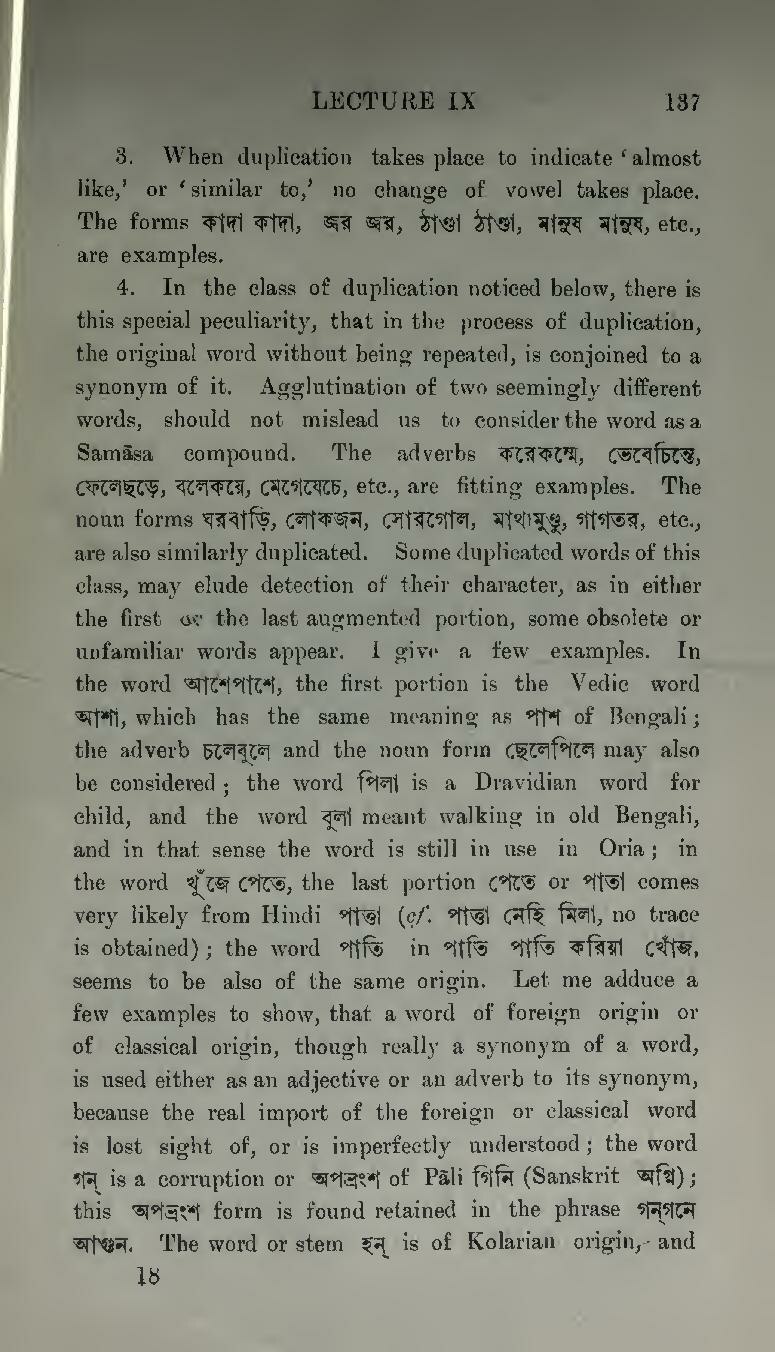3. When duplication takes place to indicate 'almost like,' or 'similar to,' no change of vowel takes place. The forms কাদা কাদা, জ্বর জ্বর, ঠাণ্ডা ঠাণ্ডা, মানুষ মানুষ, etc., are examples.
4. In the class of duplication noticed below, there is this special peculiarity, that in the process of duplication, the original word without being repeated, is conjoined to a synonym of it. Agglutination of two seemingly different words, should not mislead us to consider the word as a Samāsa compound. The adverbs করেকম্মে, ভেবেচিন্তে, ফেলেছড়ে, বলেকয়ে, মেগেযেচে, etc., are fitting examples. The noun forms ঘরবাড়ি, লোকজন, সোরগোল, মাথামুণ্ডু, গাগতর, etc., are also similarly duplicated. Some duplicated words of this class, may elude detection of their character, as in either the first or the last augmented portion, some obsolete or unfamiliar words appear. I give a few examples. In the word আশেপাশে, the first portion is the Vedic word আশা, which has the same meaning as পাশ of Bengali; the adverb চলেবুলে and the noun form ছেলেপিলে may also be considered; the word পিলা is a Dravidian word for child, and the word বুলা meant walking in old Bengali, and in that sense the word is still in use in Oria; in the word খুঁজে পেতে, the last portion পেতে or পাতা comes very likely from Hindi পাত্তা (cf. পাত্তা নেহি মিলা, no trace is obtained); the word পাতি in পাতি পাতি করিয়া খোঁজ, seems to be also of the same origin. Let me adduce a few examples to show, that a word of foreign origin or of classical origin, though really a synonym of a word, is used either as an adjective or an adverb to its synonym, because the real import of the foreign or classical word is lost sight of, or is imperfectly understood; the word গন্ is a corruption or অপভ্রংশ of Pāli গিনি (Sanskrit অগ্নি); this অপভ্রংশ form is found retained in the phrase গন্গনে আগুন. The word or stem হন্ is of Kolarian origin, and
